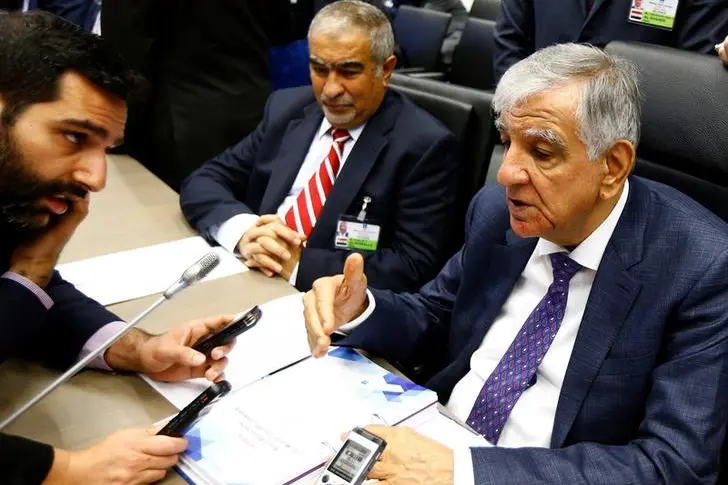PHOTO
BAGHDAD/LONDON- Iraq said on Wednesday it wanted to bring back BP to help develop Kirkuk oilfields, which Baghdad's military took over this week from the Kurdish Pershmerga forces, but the oil major said it was in no rush to return until security improves.
Kirkuk became the key area of tensions between Baghdad and Erbil since Iraq's semi-autonomous region of Kurdistan held an independence referendum three weeks ago, triggering an angry response from Baghdad and neighbouring Turkey and Iran.
Erbil refused to cancel the results of the vote, despite having its airspace and banking system blocked by Baghdad and Ankara.
This week, Kurdistan's Peshmerga forces pulled out from Kirkuk oilfields as Iraqi military advanced on the area, responsible for a half of Kurdistan's oil production or around 300,000 barrels per day.
The move could badly hit Kurdistan's ability to generate money to plug budget holes from independent oil sales, which Erbil has been relying on since 2014.
On Wednesday, Iraq's oil ministry said minister Jabar al-Luaibi had asked BP "to quickly make plans to develop the Kirkuk oilfields".
BP said it was in no rush.
"Circumstances change often ... If stability comes back and it is a different environment then ... we will not rule anything out," BP's chief executive Bob Dudley told the annual oil and money conference in London.
But he said he has not received any invitation yet from Iraq. "I read it on Reuters this morning," he said.
Kirkuk is one of the biggest and oldest oilfields in the Middle East, still estimated to contain around 9 billion barrels of recoverable oil, according to BP.
BP has provided technical assistance in the past to the Iraqi state-owned North Oil Company to aid the redevelopment of the Kirkuk field.
But Dudley said no work has been done since 2015 when Kurdish forces took control of the fields and ramped up operations to export more oil towards the Turkish Mediterranean port of Ceyhan.
"We know the field very well, we were part of its discovery many years ago. We were doing technical assistance work for Iraq in the Kirkuk region which we stopped in 2015 because it was a little bit too uncertain for us," said Dudley.
Over the past year and prior to the independence referendum, Erbil built solid ties with Russian state oil major Rosneft, agreeing oil and gas pipeline deals with the firm run by a close ally of President Vladimir Putin.
BP has a stake of nearly 20 percent in Rosneft and Dudley said he was very happy with the partnership and future projects.
(Reporting by Dmitry Zhdannikov and Ron Bousso; editing by Jason Neely and David Evans) ((Dmitri.Zhdannikov@thomsonreuters.com;))





















